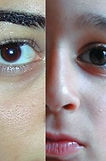QUOTATIONS
ON THE CRISES OF CHILDHOOD
The physiological, psychological, and social development of a child does not follow a uniform line but progresses in sporadic surges, each one a developmental crisis. With each crisis, the child departs from the known to confront the unknown; the child leaves a comfort able state that is no longer age-appropriate in order to launch new abilities, whether it is in the domain of emotions, intellect, motility or sociability. As such, each crisis is a leap ahead, a leap from an outdated state to a new one. Obviously, each child progresses, stabilizes, and sometimes even regresses, according to his or her own pace. For example, a child could momentarily refuse to use the toilet even after toilet training, because the child prefers to stay in the crib and remain an infant.
A child who regresses, who refuses to get through something difficult, is a child who does not feel ready to go forward. The best way of helping is to accept the setback rather than to force the child to grow up. When the moment arrives, you can be sure that the child will be where he or she needs to be, especially if he or she knows that his or her parents understand him or her and are not impatient to see the child progress.
For a child, maturation involves the recurring experience of loss and gain: loss of the security of yesterday and gain of the security of today. One could simplify it by saying that all developmental crises entail two facets: that which the child loses and that which the child gains: that which the child abandons and that which the child acquires.
However, to these two movements of renunciation and acquisition, one must add that of the sedimentation of acquisitions, since maturing also involves the accumulation of rewards from the different challenges that have been overcome. Therefore, beyond that which is lost and gained, there is that which the child holds onto forever. This is how the personality is formed. …all developmental crises are composed of three simultaneous movements: renouncing the prior state, acquiring the future state, and reaping the best of the past.
*Juan-David Nasio, A Psychoanalyst On The Couch

ON PSYCHOANALYSIS
People come to analysis in a variety of states. Some people claim that they no longer want anything and can barely drag themselves out of bed; others are so worked up about something they want that they can no longer concentrate or sleep at night. ..Many come to analysis claiming to have little idea of what they really want. They express uncertainly about their own wants, about the legitimacy of what they want, and even about wanting in general... Slowly it dawns on them that what they want is closely linked to what significant others in their life want or once wanted: ‘I know what I want but I am unable to pursue it. Every time I try I feel guilty; I feel I’m betraying someone, or that something terrible will happen.’
**Fink, B. (1997) A Clinical Introduction to Lacanian Psychoanalysis

A CHILD OF EIGHT
I am eight, and I am afraid of everything. The list of things that keep me up at night includes but is not limited to: appendicitis, typhoid, leprosy, unclean meat, foods I haven’t seen emerge from their packaging, foods my mother hasn’t tasted first so that if we die we die together, homeless people, headaches, rape, kidnapping, milk, the subway, sleep.
Lena Dunham, The New Yorker, 2014
.

